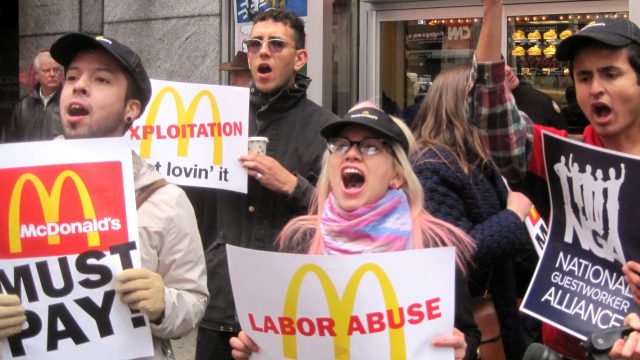If The Minimum Wage Doesn't Cost Jobs, Would The Carbon Tax Reduce Carbon Emissions?

If you tax something you get less of it. That, in a nutshell, is the conservative argument against raising the minimum wage. Inflating the cost of low-skill labor acts as a sort of tax on those sort of workers. An inflation in cost, without a corresponding increase in value, will lead employers to seek alternatives to low-skill workers.
But supporters of the minimum wage reject this. They argue that an increase in the minimum wage will not impact employment rates. Are they right?
It’s interesting that supporters of the minimum wage don’t feel that way when it comes to other forms of policy. Like so-called “sin taxes,” or a carbon tax.
Taxes on things like booze, tobacco and carbon emissions are intended to inflate the cost of those things and reduce their use. This is a well-established phenomena in these areas. When the government drives up the price of things, people use those things less.
So why wouldn’t the same phenomena be true of labor? If you inflate the cost of low-skill labor, there will be fewer jobs for low-skill laborers.




